This article was co-authored by Annie Lin, MBA. Annie Lin is the founder of New York Life Coaching, a life and career coaching service based in Manhattan. Her holistic approach, combining elements from both Eastern and Western wisdom traditions, has made her a highly sought-after personal coach. Annie’s work has been featured in Elle Magazine, NBC News, New York Magazine, and BBC World News. She holds an MBA degree from Oxford Brookes University. Annie is also the founder of the New York Life Coaching Institute which offers a comprehensive life coach certification program. Learn more: https://newyorklifecoaching.com
There are 13 references cited in this article, which can be found at the bottom of the page.
wikiHow marks an article as reader-approved once it receives enough positive feedback. In this case, 80% of readers who voted found the article helpful, earning it our reader-approved status.
This article has been viewed 357,356 times.
Are you ready to break old habits and form positive new ones? Having more good habits can help to achieve better overall health or accomplish a larger goal. Some things that you can do to form a new habit include identifying your motivation, creating a cue, and tracking your progress. If you have a bad habit you want to get rid of, just keep in mind that you may need to take steps before trying to replace it with a new good habit.
Steps
Making a Plan
-
1Set your goal. Before you can begin to work on your new habit, it is worthwhile to consider your goal. Figure out exactly what you hope to accomplish.[1] Make sure that your goal is specific, measurable, action oriented, realistic, and time bound (SMART) to increase your chances of success. Consider what you want to achieve and get as detailed as you can. Here are some questions to help.
- Specific means that the goal is targeted rather than broad and/or vague. What exactly do you want to achieve and why?
- Measurable means that the goal can be quantified (measured with numbers). What numbers are associated with your goal? How can it be measured using numbers?
- Action Oriented means that the goal is something that you can actively work towards and control. What specific activities are required for you to meet your goal? How often must you perform these activities?
- Realistic means that the goal is something you can actually achieve with the resources available to you. Is your goal something that you have the power and resources to achieve? Why or why not?
- Time Bound means that the goal has a beginning and ending or a deadline that you will hold yourself to. When will you start working towards the goal? When do you need to accomplish the goal by? What will happen if you succeed? What will happen if you fail?
-
2Identify the habit you want to form. Having good habits that are in line with the goals you want to achieve can improve your chances of attaining your goals.[2] After you have set your goal and worked out all of the specifics of achieving that goal, identify a habit that is part of achieving that goal. Consider your goal and ask yourself, what good habit would help me accomplish this goal?
- For example, if your goal is to lose 10 pounds in 6 weeks, you might decide that you want to get into the habit of taking a walk every night at 7:00pm.
Advertisement -
3Consider your motivation. Once you have identified your goal and the new habit you need to form to accomplish this goal, take some time to consider your motivation. Your motivation is the reason you want to form this new habit. Good motivation can be the difference between succeeding and failing at forming a new habit, so take your time to consider your motivation.[3]
- Ask yourself: What are the potential benefits of forming this new habit? How will the new habit improve my life?
- Write down your motivation so that you can return to it whenever you need a boost.
-
4Start small. Even if the new habit that you want to form is something big, start by making a small change to increase your chances of success.[4] If you make changes that are too drastic, you may not be able to keep up with them.[5]
- For example, if you want to stop eating fried, fatty, and sugary foods, you might struggle to give them up all at once. Instead, you might find it easier to start by eliminating one category at a time.
-
5Give yourself time. Forming a new habit can take a long time. Some people can form a new habit in as little as a few weeks, while other people will take several months.[6] As you work to form your new habit, just keep in mind that it may be a while before it is automatic. Try to be patient with yourself as you form your new habit.
-
6Expect obstacles. In the process of forming a new habit, you are bound to face some obstacles along the way. Understanding that you will face obstacles may help you to overcome them and keep working towards your new habit. It is also good to remember that even if you stumble along the way, that does not mean that you will fail.[7]
- For example, if you fail to take your daily walk one day, don’t get discouraged. Just acknowledge that you had a bad day and take your walk the following day.
Achieving Success
-
1Create a cue. Having a cue can help remind you to perform the new behavior every day. Your best bet is to make your cue something that is already a part of your daily routine, such as taking your morning shower or making coffee. For example, if you want to develop the habit of flossing your teeth every time you brush, make brushing your teeth your cue to floss. Follow up brushing with flossing and over time this behavior should become automatic.[8]
- If you can’t think of a cue that will work with your desired new habit, try setting a daily alarm on your phone to remind you that it is time to perform the behavior.
-
2Change your environment. You can increase your chances of achieving your goals by making changes to your environment. Try to think of ways that you can alter your environment so that you will find it easier to perform your new habit. What environmental changes would help you to perform your good habit each day?[9]
- For example, if you want to form the habit of going to the gym every morning before work, you can set yourself up for success by laying out your gym clothes the night before and putting your gym bag by the door.
-
3Become more mindful. Part of the reason why some people have trouble forming new good habits is because they are on autopilot and not thinking about the things they are doing. But by becoming more aware of your behavior, you may find it easier to form a new good habit. Ask yourself questions about the mindless behavior that prevents you from performing your good habit.[10]
- For example, if you want to form the habit of going to the gym every morning, think about what stops you. What is your usual morning routine? How do you spend your time when you do not go to the gym? Why do you spend your time this way? How does it make you feel?
- The next time you catch yourself going into autopilot and falling back into bad habits, question your behavior and feelings to help yourself break out of the mindless cycle.
-
4Tell people. You can help to hold yourself accountable to performing your new habit by sharing your goal with others. Consider getting a friend to help keep you on track with sticking to your new habit. Maybe one of your friends is hoping to form a good habit of their own and you can return the favor.[11]
- Make sure that the friend(s) you enlist to help you with your new habit will have some way of holding you accountable. For example, you could give your friend some money and tell them not to give it back to you until you have performed your good habit X number of times.[12]
-
5Track your progress. Keeping track of your progress towards developing your habit can help you to stay motivated and strategize when things don’t go as planned. Use a journal or an app on your phone to help you keep track of how often you perform your good habit. You might even consider sharing your progress on your social media outlets (Facebook, Twitter, etc.). Making your progress public can help you to stay motivated to continue working on your good habit.[13]
-
6Reward yourself for engaging in your good habit. You can help yourself stay motivated to continue working on your good habit by rewarding yourself. Choose a reward to give yourself once you have hit a goal. Simple things like rewarding yourself with a new outfit after you lose 10 pounds can make a big difference in your motivation to stick with your goals.[14]
- Make sure that you choose rewards that are healthy and that you can afford to provide yourself. When you accomplish a goal, make sure that you give yourself the reward soon after.
Overcoming a Bad Habit
-
1Raise your awareness. Bad habits can be hard to break because they have become ingrained and automatic. To overcome a bad habit, the first thing that you need to do is become more aware of the habit. You can raise your awareness of the bad habit by keeping a log of every time that you indulge in the bad habit.
- For example, if your bad habit is snacking between meals, write a check mark on an index card every time that you notice yourself snacking between meals. Do this for a week to see how often you engage in this habit.
- Being aware means just to 'watch' your actions and patterns that come out of a bad habit and not beating yourself over it. It is researched fact that you are more likely to make the same mistake or follow the same pattern again if you beat yourself over it. These patterns and bad habits will dissolve if you just become aware of them.
-
2Take steps to counteract the bad habit. Once you have become more aware of the habit, begin taking steps to counteract it. Try to distract yourself so that you do not engage in the bad habit. Make sure that you continue to record the instances of your desire to engage in the bad habit as well as the times that you resist the bad habit.
- For example, if you catch yourself reaching for a snack between meals, pour yourself a cup of water or go for a short walk instead.
-
3Reward yourself for resisting your bad habit. It is crucial to reward yourself for resisting the urge to engage in bad habits. The reward helps to motivate you to continue to resist the bad habit. Make sure that your reward is not to engage in the bad habit, but to do something else that is pleasurable.
- For example, if you manage to resist your urge to snack between meals for a full week, reward yourself with a new book or a trip to the salon.
Expert Q&A
-
QuestionHow long does it take to form a new habit?
 Annie Lin, MBAAnnie Lin is the founder of New York Life Coaching, a life and career coaching service based in Manhattan. Her holistic approach, combining elements from both Eastern and Western wisdom traditions, has made her a highly sought-after personal coach. Annie’s work has been featured in Elle Magazine, NBC News, New York Magazine, and BBC World News. She holds an MBA degree from Oxford Brookes University. Annie is also the founder of the New York Life Coaching Institute which offers a comprehensive life coach certification program. Learn more: https://newyorklifecoaching.com
Annie Lin, MBAAnnie Lin is the founder of New York Life Coaching, a life and career coaching service based in Manhattan. Her holistic approach, combining elements from both Eastern and Western wisdom traditions, has made her a highly sought-after personal coach. Annie’s work has been featured in Elle Magazine, NBC News, New York Magazine, and BBC World News. She holds an MBA degree from Oxford Brookes University. Annie is also the founder of the New York Life Coaching Institute which offers a comprehensive life coach certification program. Learn more: https://newyorklifecoaching.com
Life & Career Coach It can be challenging to start a new habit, so start small and work toward your goal.
It can be challenging to start a new habit, so start small and work toward your goal. -
QuestionHow do I stop eating badly?
 Claudia Carberry, RD, MSClaudia Carberry is a Registered Dietitian specializing in kidney transplants and counseling patients for weight loss at the University of Arkansas for Medical Sciences. She is a member of the Arkansas Academy of Nutrition and Dietetics. Claudia received her MS in Nutrition from the University of Tennessee Knoxville in 2010.
Claudia Carberry, RD, MSClaudia Carberry is a Registered Dietitian specializing in kidney transplants and counseling patients for weight loss at the University of Arkansas for Medical Sciences. She is a member of the Arkansas Academy of Nutrition and Dietetics. Claudia received her MS in Nutrition from the University of Tennessee Knoxville in 2010.
Master's Degree, Nutrition, University of Tennessee Knoxville Master's Degree, Nutrition, University of Tennessee KnoxvilleExpert AnswerFirst, you need to know what you need to work on. Track your intake to find out. Then, seek help from a Registered Dietitian.
Master's Degree, Nutrition, University of Tennessee KnoxvilleExpert AnswerFirst, you need to know what you need to work on. Track your intake to find out. Then, seek help from a Registered Dietitian. -
QuestionHow can you improve your eating habits?
 Claudia Carberry, RD, MSClaudia Carberry is a Registered Dietitian specializing in kidney transplants and counseling patients for weight loss at the University of Arkansas for Medical Sciences. She is a member of the Arkansas Academy of Nutrition and Dietetics. Claudia received her MS in Nutrition from the University of Tennessee Knoxville in 2010.
Claudia Carberry, RD, MSClaudia Carberry is a Registered Dietitian specializing in kidney transplants and counseling patients for weight loss at the University of Arkansas for Medical Sciences. She is a member of the Arkansas Academy of Nutrition and Dietetics. Claudia received her MS in Nutrition from the University of Tennessee Knoxville in 2010.
Master's Degree, Nutrition, University of Tennessee Knoxville Master's Degree, Nutrition, University of Tennessee KnoxvilleExpert AnswerKeep a food diary to identify your worst eating habits. Then, make changes 1 at a time.
Master's Degree, Nutrition, University of Tennessee KnoxvilleExpert AnswerKeep a food diary to identify your worst eating habits. Then, make changes 1 at a time.
Warnings
- If you are struggling with drugs or alcohol, you may need professional help to replace this bad habit with a good one. Talk to your doctor or a mental health professional to get help.⧼thumbs_response⧽
References
- ↑ Annie Lin, MBA. Life & Career Coach. Expert Interview. 25 November 2019.
- ↑ https://psycnet.apa.org/record/2013-18890-001
- ↑ https://www.psychologytoday.com/blog/changepower/201205/do-you-need-self-esteem-change-habit
- ↑ Annie Lin, MBA. Life & Career Coach. Expert Interview. 25 November 2019.
- ↑ https://positivepsychology.com/benefits-goal-setting/
- ↑ https://mhanational.org/taking-good-care-yourself
- ↑ https://www.ncbi.nlm.nih.gov/pmc/articles/PMC3505409/
- ↑ https://www.psychologytoday.com/blog/dont-delay/201310/you-can-develop-desired-health-behaviors
- ↑ https://www.psychologytoday.com/blog/slow-gains/201403/how-stick-good-habits-when-your-willpower-is-gone
- ↑ https://www.psychologytoday.com/blog/what-matters-most/201308/mindless-mindful
- ↑ https://learningcenter.unc.edu/tips-and-tools/changing-habits/
- ↑ https://www.psychologytoday.com/articles/200801/mind-your-body-doctors-orders-without-distress
- ↑ https://www.psychologytoday.com/articles/200801/mind-your-body-doctors-orders-without-distress
- ↑ https://www.bowdoin.edu/baldwin-center/pdf/handout-self-rewards.pdf
About This Article
It can be hard to form a good habit, but if you’re persistent, you can do it. Set your goal, then break that down into smaller goals that can help you stay on track. For instance, if your goal is to drink 8 glasses of water a day, you might set a goal that for the first week, you’ll drink 3 glasses of water every day, then add another glass each week until you reach your goal. Be persistent, and give yourself time, since getting into a habit can take weeks or even months. For tips from our counseling reviewer on breaking a bad habit, keep reading!


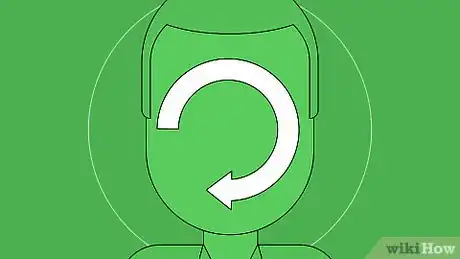

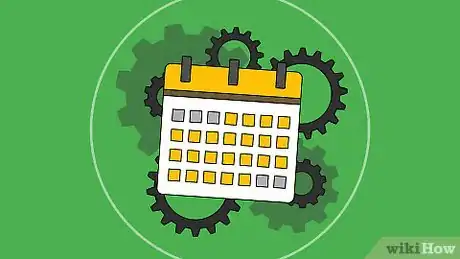









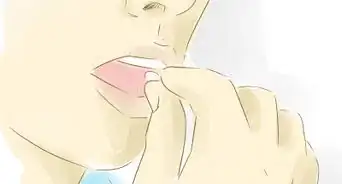
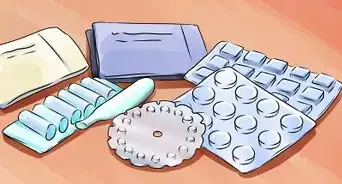



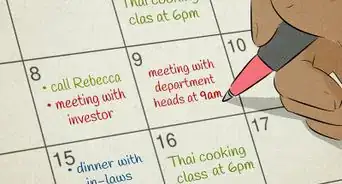



-Step-16-Version-4.webp)
















































